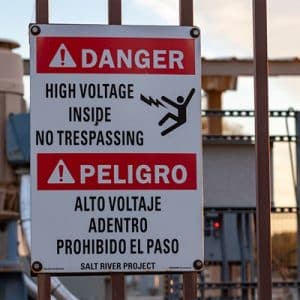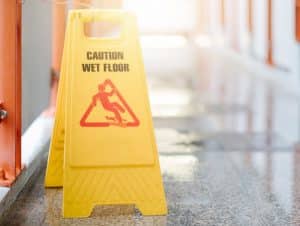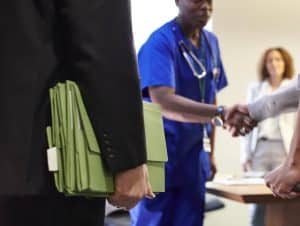You’re hit. Your heart’s pounding. Traffic is stacked around you, and suddenly, you’re expected to know what to do, what to say, and who to trust.
That’s a tall order.
We’ve created this step-by-step guide not from theory, but from decades of hands-on experience handling car accident cases in Miami. Whether you’re a lifelong resident or a visitor who got sideswiped on vacation, here’s what you need to know, and exactly what to do next.
First Things First: What a Crash in Miami Really Looks Like
Miami-Dade County recorded 59,978 crashes in 2024, with 29,351 injuries and 286 fatalities, according to Florida’s Department of Highway Safety and Motor Vehicles. More than 16,000 of those were hit-and-run cases. That’s more than 40 people driving off every single day.
Miami’s roads are among the most congested in the state, with notorious bottlenecks on I-95, US-1, and the Dolphin Expressway. A fender bender here can spiral fast, especially during rainstorms or rush hour gridlock.
Now imagine you’re in that crash. Your car just lurched forward. Horns are blaring. You’re dazed. The driver behind you looks angry. That’s the moment when the right steps can change everything.
Immediate Actions to Take at the Scene
Get to Safety — But Don’t Leave
Florida law (FL Stat. §316.061) requires you to stop at the scene of any crash involving property damage, injury, or death. If your car is operable and you’re not blocking traffic, move it to the shoulder.
If you’re on a tight street like Coral Way or Flagler, use hazard lights and exit carefully. Just don’t leave — it can be charged as a felony.
Call 911 — Expect Miami-Dade or City PD
Depending on where you are in Miami, your call could be routed to the City of Miami Police Department or Miami-Dade County. Dispatchers will ask if there are injuries, if vehicles are operable, and where you’re located. Give cross streets if you’re unsure.
Average response time for priority calls in Miami-Dade is eight minutes (more for routine calls), though traffic or storms can slow it down. Stay on the line. Help is on the way.
What You Say Matters — Don’t Apologize
It’s natural to say “I’m sorry” in the chaos. But don’t. Under Florida’s rules of evidence (FL Stat. §90.803.18), those words can be used against you as an admission of fault. Instead, check if anyone’s hurt and wait for first responders.
Also, remember: anything you say to police is generally protected under Florida’s accident report privilege (FL Stat. §316.066), but what you say to the other driver is not.
Miami Car Accident Checklist: What to Do
If you’re standing at the scene and need to act fast, here’s your guide:
- Stop and move to a safe location (if you can)
- Call 911 — don’t assume someone else has
- Take clear photos: vehicle positions, damage, street signs, weather, and injuries
- Exchange license and insurance details, but don’t discuss fault
- Get names and contact info from witnesses
- Ask for a copy of the police report number
- Accept medical evaluation, even if you feel fine
- Contact a local attorney before giving detailed insurance statements
We offer this checklist in English and Spanish as a downloadable resource. Reach out if you’d like a copy.
Documentation Is Everything
Photos are the best evidence you can collect before anything gets moved or towed. Shoot wide shots to capture positioning, then close-ups of dents, skid marks, and license plates. If it’s raining or traffic is congested, those environmental details can back up your timeline.
Collect witness names, too. In Miami, where bystanders often leave quickly, witness info doesn’t always make it into police reports. If you can, ask them to text their name and a quick note about what they saw.
Medical Care — Even If You Feel “Fine”
Under Florida’s 14-day PIP rule (FL Stat. §627.736), you must seek medical care within two weeks of your crash to access personal injury protection benefits, even if your injuries seem minor. If you wait, your insurance could deny your claim.
We’ve had clients feel “fine” at the scene, only to wake up the next morning unable to move their neck. Don’t wait. Get checked at the ER, urgent care, or a licensed accident doctor right away. Some providers won’t treat crash-related injuries; we can connect you to the ones who will and who know how to document your case properly.
Protect Your Financial Recovery
Report the Crash to Insurance
You’re required to notify your insurer about the crash, but that doesn’t mean spilling everything. Insurance adjusters are trained to interpret what you say in ways that reduce payouts.
Stick to facts:
- Date
- Location
- Vehicle info
- Reporting status
Wait to discuss injuries or liability until you’ve spoken with legal counsel.
Move Quickly on Towing
If your car is towed in Miami, expect charges of $30–$35 per day in storage, plus impound and admin fees. That adds up fast — sometimes over $400 in a week. Don’t let the car sit. We help clients resolve tow holds and get vehicles released quickly. (See more towing regulations.)
Track Your Out-of-Pocket Costs
From Uber rides to prescriptions, every expense linked to your recovery could be reimbursed.
Keep receipts for:
- Copays
- Medical devices (braces, crutches)
- Transportation to appointments
- Extra childcare or home help
We’ll document all of it in your demand letter or trial prep.
Common Car Accident Scenarios People Ask Us About
The Other Driver Fled the Scene
This is more common than you think. Don’t pursue them. Focus on documenting what you can:
- Vehicle type
- Color
- Plates (even partial)
- Direction they went
Police may locate them, and your own uninsured motorist policy could cover your injuries. We routinely handle these cases, and we act fast to preserve evidence.
You Got the Ticket
It’s not the end of your claim. Civil and criminal matters are separate. That said, do not plead guilty without speaking to us. A guilty plea can affect your civil recovery. We’ll review your situation and help fight the ticket if needed.
You’re Not From Miami
Out-of-state drivers still have legal protections under Florida law. Rental car companies typically carry required insurance minimums, but the details can be tricky. We frequently represent tourists and business travelers injured while visiting Miami. We’ll handle the case while you head home.
Why Legal Help Should Start Early
In the first 48 hours after a crash, we can:
- Pull your accident report (often delayed up to 60 days)
- Secure footage from traffic cams or nearby businesses
- Track down witnesses before memories fade
- Ensure you’re seeing the right medical professionals
- Handle insurance communications from day one
At Stabinski Law, you’ll talk to a lawyer, not just a staffer, and we’ll treat your case like it matters—because you matter.
You Only Get One Chance to Handle a Car Accident Correctly
A car accident is more than a bad day; it can change everything. Medical bills pile up. Work gets missed. Insurance plays hardball. The system isn’t set up to help you—but we are.
If you were hurt in a crash in Miami, don’t wait. Reach out to Stabinski Law today for a free consultation with an experienced car accident attorney in Miami.









